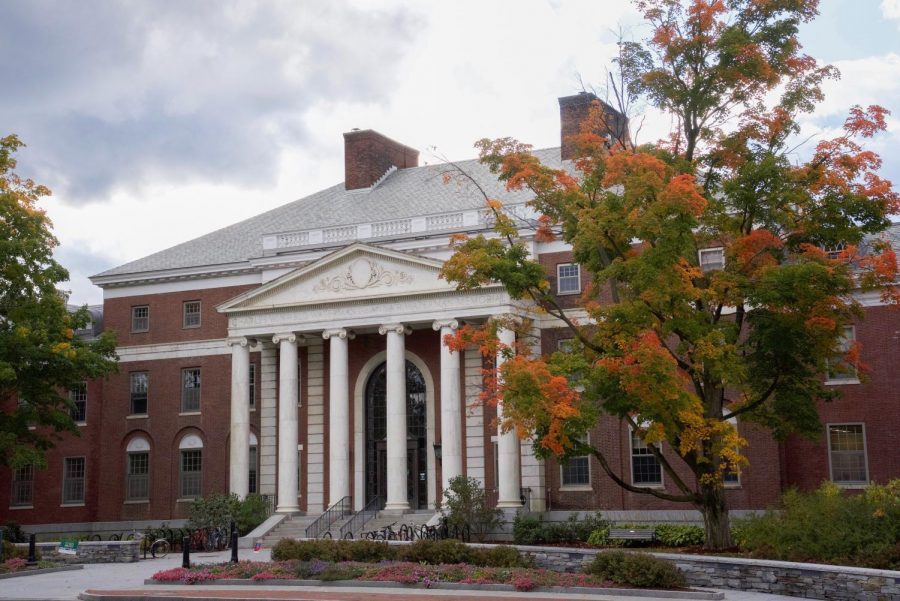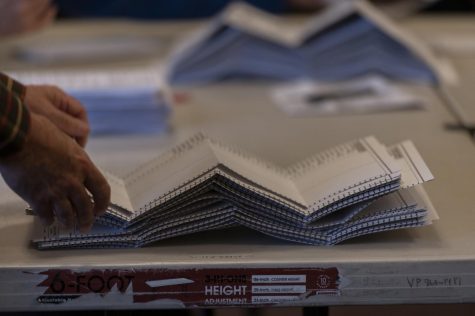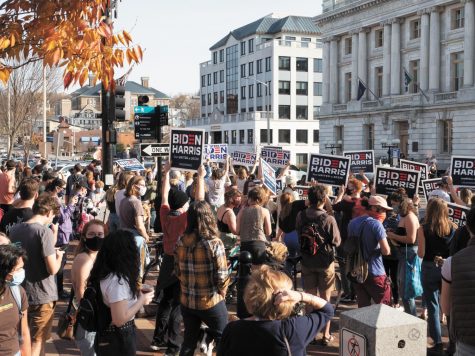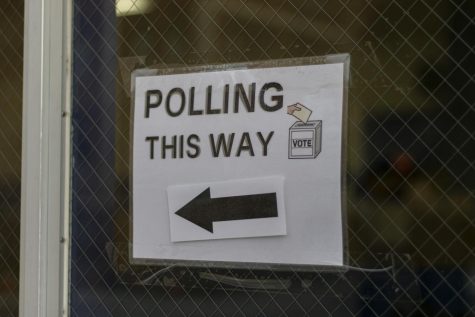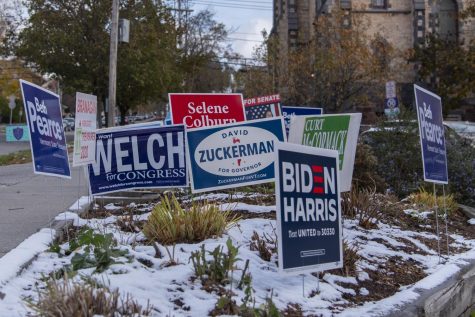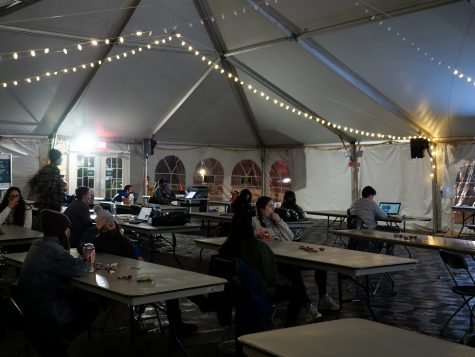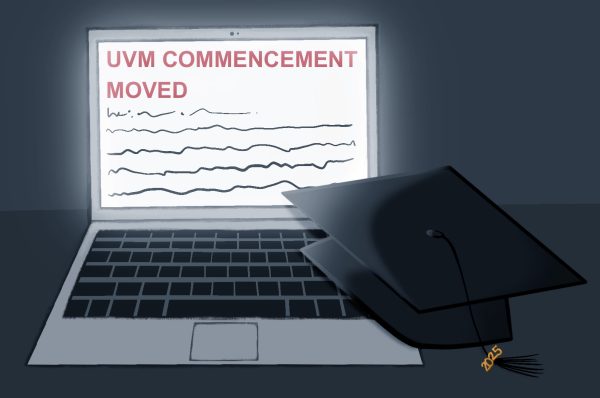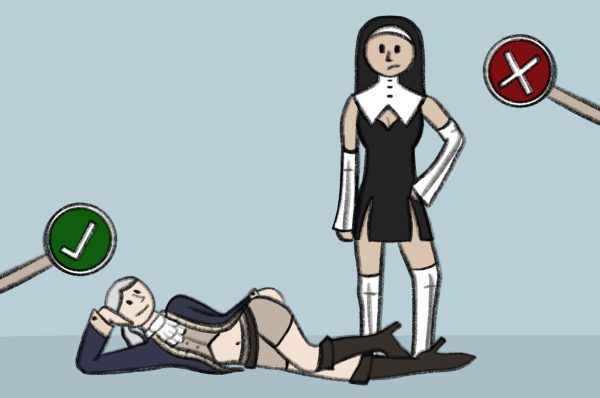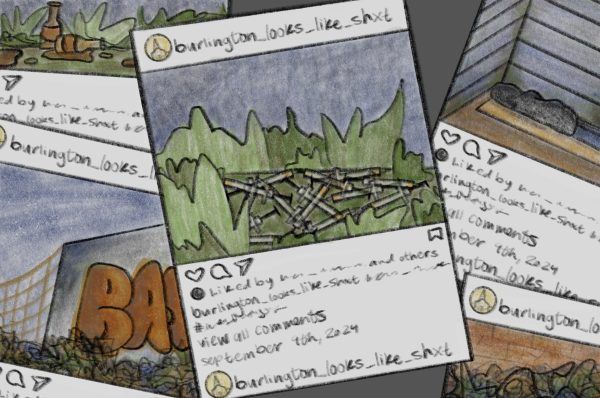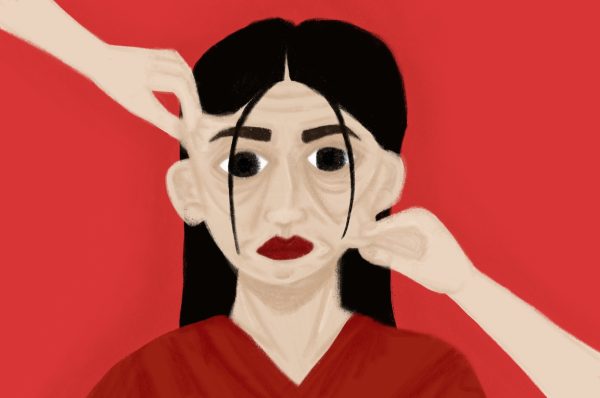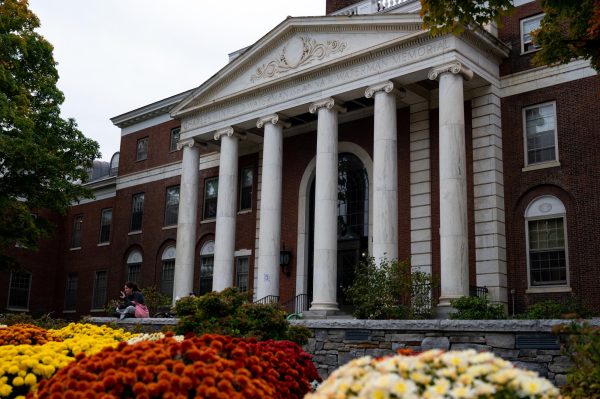Amidst political polarization, professors foster atmospheres of respect
Mary McLellan/The Vermont Cynic
The Waterman building located on the corner of South Prospect Street and College Street stands with nobody around it, Sept. 30. Waterman is the largest academic building on campus.
Despite deep political divides both nationwide and on campus, UVM faculty members are trying to create respectful and open spaces for students to discuss divisive topics in classrooms.
As a historic presidential election quickly approaches, political views remain a polarizing topic at UVM, a school rated as one of the most liberal in America, according to the Princeton Review.
Although a UVM policy on political engagement prohibits UVM employees and students from endorsing or opposing a candidate for public office on behalf of the University due to IRS regulations, faculty have been prioritizing an open discussion environment in the classroom that is respectful to everyone.
UVM Spokesperson Enrique Corredera said UVM must follow the political engagement policy because of its standing as a 501(c)(3) tax-exempt organization, according to an Oct. 30 email.
Professors do however have some leeway when it comes to teaching in the classroom. A UVM policy on academic freedom allows faculty to have political discussions with students in class for the sake of “intellectual growth.”
Universities deal with “new [ideas] that may be full of explosive power,” the academic freedom policy stated.
“Inevitably they will be called dangerous by the timid and short-sighted… [but] the real danger would appear only if the flow of such ideas should cease,” the policy reads.
Academic freedom is crucial for allowing faculty to have the freedom to teach their classes in whatever manner they see fit, even if entering political territory, said Alex Zakaras, associate professor of political science.
“Faculty shouldn’t have to worry about someone reprimanding them for teaching something that’s controversial or not popular with the administration or government,” he said. “This freedom is critical for us to be able to fulfill our educational mission to help students learn and grow.”
For Zakaras, however, making sure in-class conversations on political topics remain civil and respectful is more challenging than it has been in the past.
“A lot of students are angry and frustrated with our political climate. It can be difficult to create conversational spaces that feel inclusive to everybody, now more than ever,” he said. “That being said, mutual respect is a baseline we as a faculty really emphasize.”
Deborah Guber, associate professor of political science, said in an Oct. 29 interview that though her classes focus more on empirical data and facts than political opinions, having a respectful classroom environment is also very important to her.
“I want to be sure that students feel safe and that they can express something if they want to,” she said. “But I will rein them in if they wander too far into personal opinion, or I may provide balance by playing the role of devil’s advocate.”
Other academic subjects are closely entwined with politics and current events, such as business, stated Rocki-Lee DeWitt, professor in the Grossman School of Business.
“It is impossible to teach business without some consideration of political processes and government as they relate to business effects,” she stated in an Oct. 28 email to the Cynic. “But I will not share my personal political beliefs in the classroom.”
The goal of creating an atmosphere of dignity and respect for students is still important, she stated.
“Overall, I am much more interested in making sure that students feel comfortable sharing their thoughts and experiences with me and their classmates. They are always welcome to initiate topics of discussion in and outside of the classroom,” DeWitt said.
However, the COVID-19 pandemic has made it more difficult to connect and engage with students, especially outside of the classroom, DeWitt said in an Oct. 29 interview.
“Social distancing makes it difficult to make connections with students,” she said. “There are fewer opportunities to have these conversations.”
Jack Spanierman, a UVM senior with a global studies major, said that in his experience, students don’t tend to explicitly voice their political views in class, though political conversations do happen.
“A lot of kids shy away from explicitly stating which candidate they support in the election, but there is definitely a dialogue that goes back and forth between both sides of the coin,” he said.
However, professors are still doing a good job of creating an open and safe learning environment in the classroom, he said.
“In my own experience, professors have done well in creating an open dialogue where students can talk about anything as long as they have the information to back it up,” he said in an Oct. 31 interview. “You don’t have to conform to anybody or go with the grain.”
Having these conversations with other students is an important part of a college education, he said.
“That’s why we’re in college, to have intelligent conversations about various issues while being faced with different opinions from others, even if you don’t necessarily agree,” he said.
Even in classrooms with open dialogues, however, it makes sense that more conservative students may feel unwelcome to speak up, Spanierman said.
“Humans are very social creatures, and unless you’re very outspoken, a lot of us just want to fit in,” he said. “And this is a liberal campus with a liberal student body. I’m not sure how we can overcome that.”
Even with academic freedom, it can be a struggle to keep personal political beliefs outside of the classroom, Zakaras said.
However, expecting all personal political beliefs and biases to be completely out of the classroom is naive, he said.
“After a lot of political discussion, students can make educated guesses about where a faculty member stands on certain political issues,” he said. “But faculty should not be pushing their own partisan values in class or trying to convert students to them. I think UVM faculty are careful about this.”


